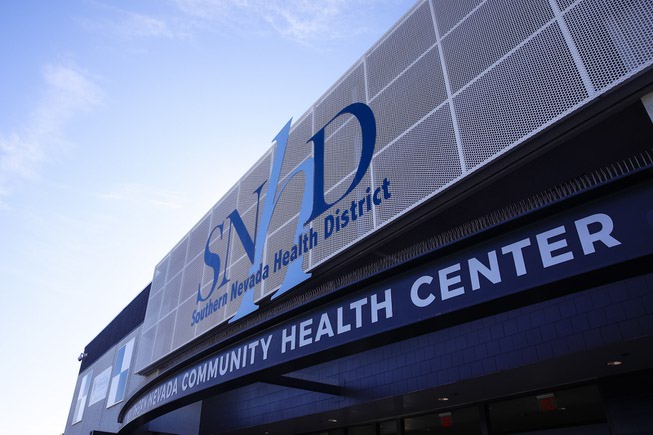Wednesday, June 28, 2023 | 2 a.m.
The Centers for Disease Control and Prevention warned that a resurgence of mpox cases could be coming this summer, but Southern Nevada has only had two reported cases this year — the most recent coming in February, according to the Southern Nevada Health District.
SNHD vaccines
To schedule a mpox vaccination appointment, go online to rb.gy/h4wms
“While the Southern Nevada Health District has not reported any recent cases of mpox, the reports of cases in several cities throughout the United States could mean we are at risk of a resurgence of the virus,” officials from the SNHD said in a statement. “We are continuing to conduct surveillance activities and recommending people take steps to protect themselves from the virus, including getting the vaccine if they are at greater risk of exposure.”
A global outbreak of mpox, formerly known as monkeypox, started in May 2022 and peaked near 460 cases a day nationally in August 2022, according to the CDC. The Las Vegas area also had its highest month of cases last August with 117 — part of 295 total reported cases since June 2022, when the virus was initially reported here.
The virus spreads through person-to-person contact or by touching items that have been handled by someone with mpox. Symptoms include fever, chill, headache, muscle aches, swollen lymph nodes, exhaustion and eventually a painful rash that could spread to different parts of the body, according to the health district.
It disproportionately affected gay and bisexual men, other men who have sex with men and transgender people, but it can still infect those outside of these groups, public health officials said.
Although cases have steadily declined since August 2022, the CDC said the outbreak was not over and there was “ongoing community transmission.”
Last month, the CDC issued an alert about a potential risk for new mpox cases after finding a cluster in the Chicago area, some of which involved patients who were vaccinated against mpox.
“This increase in cases before large summer events scheduled nationwide and in Chicago raised concerns about possible future case increases,” the CDC said in a statement. “Although the cause of this cluster has not yet been determined, leading hypotheses include a potential high number of sexual exposures in a network with many vaccinated persons, decreased vaccine effectiveness due to waning of humoral immunity, or vaccine mishandling or administration errors.”
About 30,505 mpox cases have been reported in the United States since June 21, with 43 deaths. The majority of cases continue to be found in LGBTQ+ men, with Latino and Black residents continuing to be affected the most.
The resurgence is expected to arrive as more people are out in the summer with less clothing on, increasing their risk of making contact with infected people or items.
“Definitely there’s a possibility of resurgence just because of the summer and people getting close together and not wearing clothes and different things like that,” said Mona Lisa Paulo, director of clinic and HIV services at The LGBTA Center of Southern Nevada. “So, definitely, we want to be hypervigilant and let people know that the risk is still out there — it hasn’t diminished.”
Vaccination continues to be one of the most effective ways to prevent a serious mpox infection, Paulo said. About 11,140 vaccines have been administered in Clark County.
The Center hosts walk-in mpox vaccination clinics from 8 a.m. to 2 p.m. Fridays, although mpox vaccines won’t be available in July while the health district turns its focus to back-to-school vaccinations valleywide.
The most recent cluster of cases in Chicago involved some people who had been vaccinated, but Paulo stressed that it doesn’t mean the shot is ineffective.
“It’s kind of like COVID, (the mpox) is not going to be as severe, so that’s why it’s important to get people vaccinated,” Paulo said. “And then the more vaccinated you are, the more people in the community are vaccinated, the more we can create herd immunity as well.”

